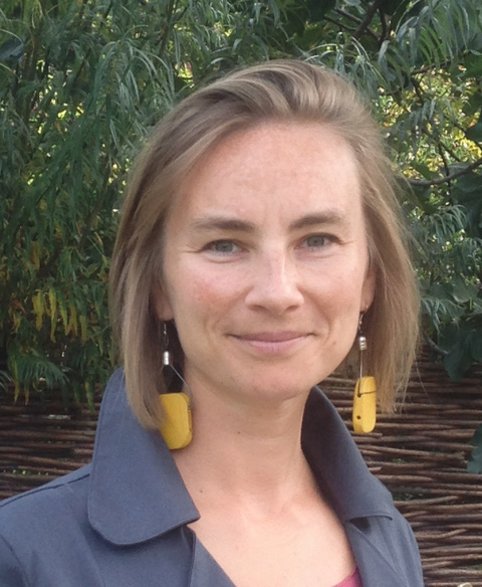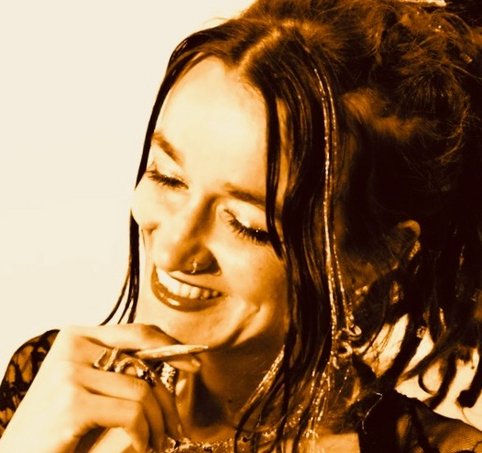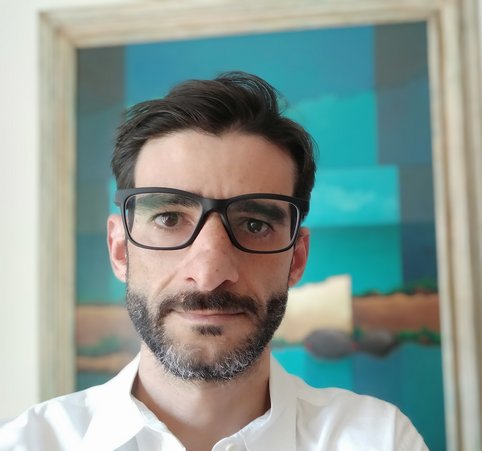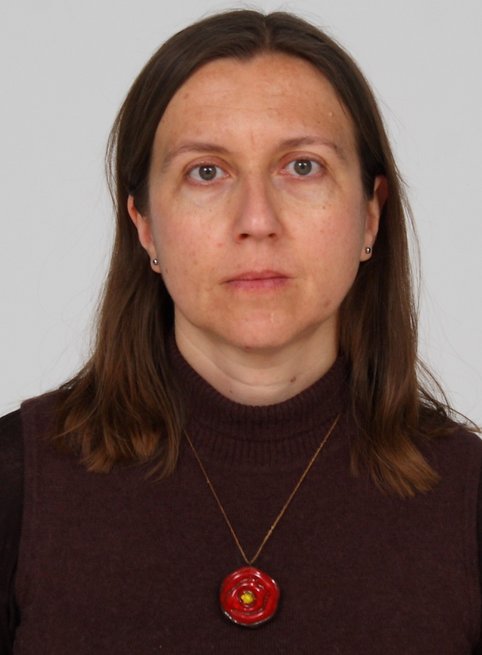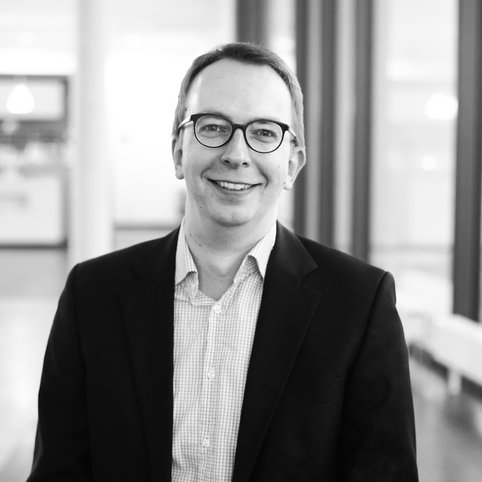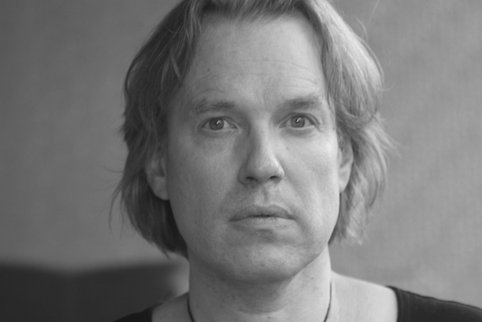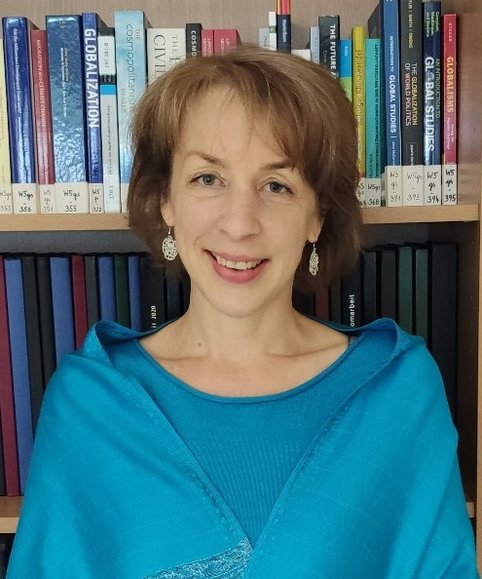Nach dem Menschen? Ringvorlesung im Wintersemester 2022/23
Die Ringvorlesung beschäftigt sich mit den Transformationsprozessen der conditio humana im Kontext wissenschaftstheoretischer, posthumanistischer und neomaterialistischer Netzwerk- bzw. Gefüge-Theorien. Diese versuchen, die klassische Natur-Kultur-Dichotomie zu überwinden und nicht nur Menschen, sondern auch nichtmenschliche Entitäten wie Tiere, Pflanzen und die Technologie einzubeziehen.
Ein Fokus bei der Analyse solcher Transformationen wird auf die Wechselbeziehungen zwischen Kunst, Wissenschaft und Religion als wichtige historisch gewachsene und kontrovers diskutierte Institutionen der Sinnstiftung gelegt, die in der Vorlesungsreihe aus verschiedenen interdisziplinären – gleichermaßen aktuellen wie historischen – Perspektiven erforscht werden.
Lecture Series
After Human? Making Sense between Art, Science, and Religion in the 21st Century
In the lecture series, we will explore on contemporary transformations of the human condition against the backdrop of ecomodernist, posthumanist, and neomaterialist network and entanglement theories which include not only humans but also non-human actors / actants such as animals, plants, and technology.
A focus will be laid on the interrelations between art, science, and religion in such transformations to be analysed from a variety of interdisciplinary perspectives.
Time/Location
October 2022-January 2023
Tuesdays* 6-8pm
Catholic Private University Linz
Bethlehmstraße 20, 4020 Linz (AT)
Lecture Hall 1 / hybrid mode (when indicated just Zoom-mode)
* The lecture on 26 January 2023 takes place on a Thursday.
Mode/Registration
The lecture series will take place in hybrid mode (live and via zoom) and can be attended in accordance with the Corona-regulations in place at KU Linz or online!
Registration at: afterhuman[at]ku-linz.at
Videos of the lectures will be published at L.I.S.A. Wissenschaftsportal (Gerda Henkel Stiftung) over time!
Organised by
Kerstin Borchhardt
Institute of History and Theory of Art, Department of Art History
Schedule
- 18 October 2022
Gerfried Stocker (Linz)
Keynote Lecture - 25 October 2022
Evi Sampanikou (Lesbos, online)
"From Postmodern to Posthuman Art: Technologies, Theologies and Ethics of the Visual Arts in the 21st Century" - 15 November 2022 cancelled!
María Antonia González Valerio (Mexico-City, online)
"What Kind of Human for the Post Anthropocene Epoch?"
The lecture of María Antonia Gonzalez Valério had to be cancelled. Instead, Rodrigo Menezes (Sao Paulo) held the online lecture "After God: Thinking, Writing, and Living in a Postmetaphysical Age" on Thursday, 26 January 2023. - 22 November 2022
Michael F. Zimmermann (Eichstätt)
"Humanismus nach dem Humanismus? Die conditio humana als Teilhabe und die Landschaft im Zeitalter planetarischer Krisen" - 29 November 2022
Thomas Schmaus (Alfter)
"Konkreativität von Mensch und Welt. Impulse für eine ästhetische Ontologie im Anthropozän" - 6 December 2022
Veronika Wittmann (Linz)
"Science Diplomacy for Environment: A Panacea for Global Challenges?" - 13 December 2022
Ksenia Fedorova (Leiden)
"Sense Acts and Representation of Decision-Making in Art and Science" - 10 January 2023
Stefan Lorenz Sorgner (Rome)
"Philosophy of Posthuman Art" - 17 January 2023 - ZOOM
Francesca Ferrando (New York)
"Being Posthuman: Now"
Interactive Lecture in Dialogue with Dipali Mathur (Edinburgh) and Robert Starzer (Linz) - 26 January 2023 (Thursday) - ZOOM
Rodrigo Menezes (Sao Paulo, online)
"After God: Thinking, Writing, and Living in a Postmetaphysical Age"
The lecture series is funded by
Bischöflicher Fonds zur Förderung der KU Linz
Verein "Freunde der KU Linz"
Günter Rombold Privatstiftung
Zeit/Ort
Oktober 2022 bis Januar 2023
dienstags* 18 bis 20 Uhr
Katholische Privatuniversität Linz
Bethlehemstraße 20, 4020 Linz
Hörsaal 1 / Hybridmodus bzw. zum Teil reiner Zoom-Modus
*Der Vortrag am 26.1.2023 ist donnerstags!
Modus/Anmeldung
Die Ringvorlesung findet im Hybridmodus (live und via zoom) statt und ist unter Einhaltung der jeweils aktuell geltenden Corona-Maßnahmen öffentlich zugänglich.
Um Anmeldung wird gebeten unter: afterhuman[at]ku-linz.at
Flyer "Nach dem Menschen?" Leaflet "After Human?"
Videomitschnitte der Vorträge werden sukzessive am L.I.S.A. Wissenschaftsportal der Gerda Henkel Stiftung zugänglich gemacht!
Programm
(Details zu den Vortragenden siehe unten)
18. Oktober 2022
Gerfried Stocker (Linz)
Keynote Lecture
Bericht zum Vortrag von Gerfried StockerVideo des Vortrags am L.I.S.A. Wissenschaftsportal der Gerda Henkel Stiftung
25. Oktober 2022
Evi Sampanikou (Lesbos, online)
"From Postmodern to Posthuman Art: Technologies, Theologies and Ethics of the Visual Arts in the 21st Century"
Bericht zum Vortrag von Evi SampanikouVideo des Vortrags am L.I.S.A. Wissenschaftsportal der Gerda Henkel Stiftung
- 15. November 2022 entfallen!
María Antonia González Valerio (Mexiko-Stadt, online)
"What Kind of Human for the Post Anthropocene Epoch?"
Der Vortrag von María Antonia Gonzalez Valério musste leider entfallen. Stattdessen hielt Rodrigo Menezes (Sao Paulo) am Donnerstag, 26. Januar 2023 den Online-Vortrag "After God: Thinking, Writing, and Living in a Postmetaphysical Age".
22. November 2022
Michael F. Zimmermann (Eichstätt)
"Humanismus nach dem Humanismus? Die conditio humana als Teilhabe und die Landschaft im Zeitalter planetarischer Krisen"
Bericht zum Vortrag von Michael F. Zimmermann
29. November 2022
Thomas Schmaus (Alfter)
"Konkreativität von Mensch und Welt. Impulse für eine ästhetische Ontologie im Anthropozän"
Bericht zum Vortrag von Thomas Schmaus
6. Dezember 2022
Veronika Wittmann (Linz)
"Science Diplomacy for Environment: A Panacea for Global Challenges?"
Bericht zum Vortrag von Veronika Wittmann
13. Dezember 2022
Ksenia Fedorova (Leiden)
"Sense Acts and Representation of Decision-Making in Art and Science"
Bericht zum Vortrag von Ksenia Federova
10. Januar 2023
Stefan Lorenz Sorgner (Rom)
"Philosophy of Posthuman Art"
Bericht zum Vortrag von Stefan Lorenz Sorgner
17. Januar 2023 - ZOOM-Modus
Francesca Ferrando (New York)
"Being Posthuman: Now"
Interactive Lecture moderiert von Dipali Mathur (Edinburgh) und Robert Starzer (Linz)
Bericht zum Vortrag von Francesca Ferrando
26. Januar 2023 (Donnerstag) - ZOOM-Modus
Rodrigo Menezes (Sao Paulo)
"After God: Thinking, Writing, and Living in a Postmetaphysical Age"
Bericht zum Vortrag von Rodrigo Menezes
Organisation
Kerstin Borchhardt
Institut für Geschichte und Theorie der Kunst, Fachbereich Kunstwissenschaft
Die Veranstaltung wird gefördert von
Bischöflicher Fonds zur Förderung der KU Linz
Verein "Freunde der KU Linz"
Günter Rombold Privatstiftung
Zu den Vortragenden
Ksenia Fedorova (PhD, University of California, Davis; PhD, Ural State University, Ekaterinburg) is Assistant Professor at Leiden University, NL.
She is the author of Tactics of Interfacing: Encoding Affect in Art and Technology (MIT Press, 2020) and the co-editor of Media: Between Magic and Technology (2014, in Russian), her other publications appeared in Leonardo Electronic Almanac, Media & Culture Journal, Acoustic Space, Dialog of Arts and numerous edited volumes. Before joining Leiden University she was an Alexander von Humboldt Research Fellow at Humboldt University Berlin. In 2007-2011 she worked as a curator at the Ural branch of the National Center for Contemporary Arts (Ekaterinburg, RU) where she initiated and led the “Art. Science. Technology” program.
Ksenia’s interests encompass media art theory and history, aesthetics, science and technology and visual culture studies, with a focus on the effects of technologies on human perception and interaction.
Francesca Ferrando teaches Philosophy at NYU-Liberal Studies, New York University.
A leading voice in the field of Posthuman Studies and founder of the Global Posthuman Network, she has been the recipient of numerous honors and recognitions, including the Sainati prize with the Acknowledgement of the President of Italy. She has published extensively on these topics; her latest book is Philosophical Posthumanism (Bloomsbury 2019). In the history of TED talks, she was the first speaker to give a talk on the topic of the posthuman. US magazine “Origins” named her among the 100 people making change in the world.
Info: www.theposthuman.org
Rodrigo Menezes graduated in Social Communication from Fundação Armando Álvares Penteado (2003) and in Philosophy from Pontificia Universidade Catolica de Sao Paulo (2009), with a Masters degree in Sciences of Religion (2007) and PhD in Philosophy (2016) from the same university (PUC-SP). Both his Master's degree and his PhD were dedicated to investigating the works of Romanian-French philosopher Emil Cioran.
Menezes is the editor of Portal E.M. Cioran Brazil (est. 2010), and, besides that, an independent researcher, editor, and translator. His main philosophical interests revolve around philosophical anthropology and modern existential philosophies, philosophies of the absurd, tragic philosophies, existential and metaphysical pessimisms, nihilism and meontology, theodicy, skepticism, and atheism, and mysticism.
Further topics of interest concerning Cioran revolve around philosophy of religion and mysticism, in convergence with philosophies of existence, on the one hand (subject of my MA in Sciences of Religion), and, on the other (PhD), around the link between philosophy and literature, esthetics, essayistic and aphoristic writing, poetics of the fragment, writing as therapy or, as I like to call it, Cioran's "pharmacography" (after La Pharmacie de Platon, by Derrida, in which he elaborates on the notion of pharmakon). Menezes is also interested in the connection between literature, essayistic writing, and exile as deterritorialization.
Evi Sampanikou is Professor of Visual Culture and Art History at the Department of Cultural Technology and Communication at the University of the Aegean.
She has studied Archeology & Byzantine Studies and English Literature. She has taught at the Democritus University of Thrace (Greece) and has been collaborating with the Hellenic Open University for years. She focused her research initially on post-Byzantine painting (PhD), then on art theory, photography, new media art, comics & graphic novels and cultural management. Combining the above with the extensions of contemporary philosophy in art, she actively participates in international research activities related to Posthumanism and is a founding member of the Beyond Humanism Conference Series.
Among her recent publications are the books: Evi D. Sampanikou (ed) (2017). Audiovisual Posthumanism, Cambridge Scholars Press, and Evi D. Sampanikou & Jan Stasienko (eds) (2021), Posthuman Studies Reader. Core Readings on Transhumanism, Posthumanism and Metahumanism a Reader on Posthumanism. Schwabe Verlag.
Thomas Schmaus, Dr. phil., Dipl.-Theol.
Studium der Philosophie und der Katholischen Theologie an der LMU München, der Universität Wien und der Hochschule für Philosophie München – dort 2010 Promotion bei Gerd Haeffner mit einer Arbeit zum Denken Heinrich Rombachs („Philosophie des Flow-Erlebens“); seit 2013 Juniorprofessor, seit 2018 Professor für philosophische Anthropologie an der Alanus Hochschule für Kunst und Gesellschaft in Alfter/Bonn; phänomenologische Ausrichtung.
Aktuelle Forschungsschwerpunkte: Mensch-Natur-Beziehungen (Anthropozän, Anthropo- und Ökozentrismus, Resonanz und Entfremdung, Urban Gardening) und Mensch-Technik-Verhältnisse (Digitalisierung, Trans- und Posthumanismus).
Stefan Lorenz Sorgner ist Philosophieprofessor an der John Cabot University in Rom, Direktor und Mitbegründer des Beyond Humanism Network, Fellow am Institute for Ethics and Emerging Technologies (IEET), Research Fellow am Ewha Institute for the Humanities an der Ewha Womans University in Seoul und Visiting Fellow am Ethikzentrum der Friedrich-Schiller-Universität in Jena.
Er ist Herausgeber von mehr als zehn Aufsatzsammlungen und Autor von Metaphysics without Truth (Marquette UP, 2007), Menschenwürde nach Nietzsche (WBG, 2010), Transhumanismus (Herder, 2016), Schöner neuer Mensch (Nicolai, 2018), Übermensch (Schwabe, 2019), On Transhumanism (Penn State University Press, 2020), We have always been Cyborgs (Bristol University Press, 2022), Philosophy of Posthuman Art (Schwabe, 2022). Darüber hinaus ist er Chefredakteur und Gründungsherausgeber des Journal of Posthuman Studies, ein gefragter Redner in allen Teilen der Welt (World Humanities Forum, Global Solutions Taipei Workshop, Biennale Arte Venezia, TEDx) sowie regelmäßiger Ansprechpartner von nationalen und internationalen Journalisten und Medienvertretern. (Die Zeit, Cicero, Der Standard; Die Presse am Sonntag, Philosophy Now).
Weitere Informationen: www.mousike.de
Gerfried Stocker, Künstlerischer Leiter/Co-CEO Ars Electronica.
Weitere Informationen: Personenseite Gerfried Stocker/linzwiki
Veronika Wittmann is Associate Professor for Global Studies at the Faculty of Social and Economic Sciences at the Johannes Kepler University Linz, Austria and Deputy Head of the Institute for Cultural Economics and Cultural Research.
She was enrolled in the PhD Programme of the Austrian Academy of Science 2000-2001 and was a Junior Visiting Fellow at the Institute for Human Sciences in Vienna 2000-2001 as well as a Research Visiting Fellow at the Institute for Ibero-American Studies in Hamburg 2006. Veronika Wittmann also worked at the United Nations (UNDP) in Ecuador in 2002. She has undertaken several field research works in Sub-Saharan Africa.
She received her venia legendi for Sociology at Johannes Kepler University Linz in 2013. She has published several books and papers in journals and in collective volumes and participated as invited speaker at numerous international conferences.
Science awards: Austrian Sociological Society science award for the best dissertation 2004; Dr. Leopold Kunschak Science Prize 2003; Kepler Science Prize 2002; Science award of the Dr. Maria Schaumeyer Foundation 2002.
Veronika Wittmann held the national Austrian leadership for Sustainable Development Goal 17 (Partnerships for the Goals) at UniNEtZ (Universities and Sustainable Development Goals) from 2019 to 2021; she is the representativ of JKU at the Global Studies Consortium since 2014 as well as at Africa-UniNet - Network of all higher education and research institutions in Austria and in all countries of the African continent since 2020.
Her research areas include World Society and Global Politics, Digital Diplomacy, Science Diplomacy, Sustainable Development, and Cultural Studies.
Further information/Weitere Informationen (Dt./Engl.): Personenseite Veronika Wittmann/JKU Linz

Michael F. Zimmermann, seit 2004 Inhaber des Lehrstuhls für Kunstgeschichte an der Katholischen Universität Eichstätt-Ingolstadt, hat Kunstgeschichte, Philosophie und Geschichte in Köln, Rom und Paris studiert. Danach war er u.a. Zweiter Direktor am Zentralinstitut für Kunstgeschichte (1991-2002) sowie ordentlicher Professor an der Université de Lausanne (2002-04). Er ist Mitglied der Academia Europaea, London, sowie der Bayerischen Akademie der Wissenschaften.
Seine Dissertation (1985, Köln) Seurat. Sein Werk und die kunsttheoretische Debatte seiner Zeit wurde 1991 in mehreren Sprachen publiziert. Seine Habilitation (2000, FU) Industrialisierung der Phantasie. Malerei, illustrierte Presse und das Mediensystem der Künste in Italien, 1875-1900 erschien 2006. Aufsätze unlängst über Bruegel, Courbet, Manet, Degas, Odilon Redon, Van Gogh, Cézanne, Allan Sekula, jeweils in wissens(chafts)geschichtlichen Kontexten, sowie über Bachtin, Benjamin, Foucault und Agamben. Forschungsschwerpunkt derzeit über Mediale Lebensformen und Visuelle Narratologie – Methoden partizipativen Bildverstehens.

